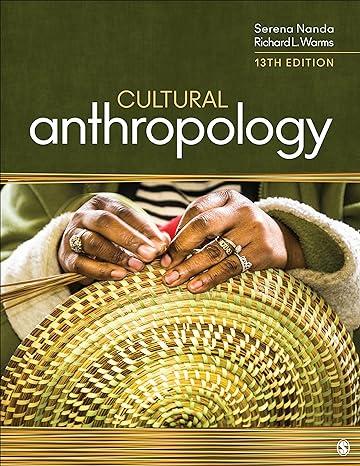As almost everyone reading this book will be aware, college is expensive, and its cost has been
Question:
As almost everyone reading this book will be aware, college is expensive, and its cost has been rising. In 1970 , the total cost for a year of college at a 4 -year public university was about \(\$ 1,400\). College costs increased only at the rate of inflation until the mid-1980s and then started to rise rapidly. According to the National Center for Educational Statistics, corrected for inflation, the cost of a year at a 4year public college or university (including tuition, fees, room and board) rose from \(\$ 8,604\) in 1985 to almost \(\$ 17,000\) in 2010 (NCES, 2019).
In the past decade, costs have soared. For the 20212022 school year, the average estimated cost of attending a year of college is \(\$ 27,330\) for in-state students and public universities, \(\$ 44,150\) for out of state students at these universities, and \(\$ 55,800\) for students at private, nonprofit universities (CollegeBoard, 2021). Many prestigious universities have tuition room and board costs well above \(\$ 75,000\) a year. The cost of the 2021-2022 school year at Columbia University is almost \(\$ 85,000\). The University of Chicago, Harvey Mudd College, Oberlin College, and many others are nearly as expensive (CollegeCalc, 2022; Statistica, 2022).
In her 2019 book Indebted: How Families Make Make College Work at Any Cost, anthropologist Caitlin Zaloom reports that the changes in the cost of a university education reflect major political shifts in beliefs about the role that postsecondary education is supposed to play in society. These have caused very important changes in family dynamics and in the economic relationship between children and their parents.
Throughout the 20th century, American understandings of education were strongly influenced by the ideas of the educational philosopher John Dewey (1859-1952). Dewey, a friend and colleague of founding anthropologist Franz Boas, believed that education was fundamental to democracy. Its purpose was to "teach students how to fashion novel habits, dispositions, and institutions, serving to advance democracy as circumstances evolve" (Zaloom, 2019, p. 169). Under this philosophy, education was a public good: Universities were primarily of benefit to the nation. Students had to be free to follow their interests and inclinations since the flexibility this produced would best serve the nation.
Beginning in the 1980s, Dewey's philosophy of education began to be replaced by a different idea: University education existed to ensure high future incomes for the individual. Thus, education moved from being considered primarily good for the nation to being understood as primarily good for the individual. Two further ideas followed from this. First, if the main purpose of university education was jobs, then universities must stress producing students with the specific skills demanded by industry. Second, if the primary benefit was to the individual, then individuals should cover almost all the cost of their educations. The fact that, adjusted for inflation, overall state funding for public higher education in 2017 was almost \(\$ 9\) billion below its level in 2008 reflects this shift from education as a public benefit to education as a private good (Zaloom, 2019, p. 195).....
Questions 1. Should the United States offer free college tuition to all qualifying students? What are the advantages and disadvantages of this?
2. What was your own experience with the FAFSA? How easy or how difficult did you find it to fill out? Does your family fit Zaloom's model of the nuclear family that owns a home, shares responsibility, and exchanges financial information freely?
3. How well do you understand how your own education is being
financed? Do you know what you and your family members will owe when you graduate and how soon you will be required to start paying off your loans?
Step by Step Answer:






